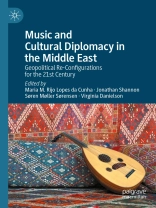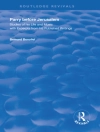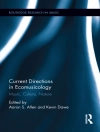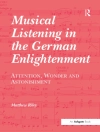This edited volume offers innovative perspectives on the study of music as cultural diplomacy in the Middle East and North Africa (MENA), a region often overlooked in such discussions. It offers an innovative contribution to the field of ethnomusicology, as well as political science and international relations, by highlighting the agency of non-state actors (local voices, communities, and grassroots organizations), thereby contributing towards de-centering the state, hitherto conceived as the chief player in cultural diplomacy.
This volume is divided into four main parts organized along the following themes: 1. History and Historiography, 2. Migration, Diaspora, and Ethics, 3. Statecraft and Music Making, and 4. Affective and Sensorial Diplomacy. The perspectives offered in this volume offer a deeper exploration of bottom-up initiatives of cultural diplomacy through music, instead of the more usual analyses of top-down, state-directed programmes. Overall, the aim is to reconceptualize Middle Eastern, North African and Arab Gulf musical practices in their relationship to power and cultural diplomacy in order build a broader and pluri-dimensional account of these contentious relationships.
Зміст
Chapter 1. Introduction: Music and Cultural Diplomacy in the Middle East—Geopolitical Reconfigurations for the Twenty-First Century.- Part I Music as Cultural Diplomacy: History and Historiographic Perspectives.- Chapter 2. From the Ottoman Twilight to the Roaring Twenties: The Early Career of Sharif Muhiuddin Haidar.- Chapter 3. Strike an Elizabethan Pose: Early Music Diplomacy—Queen Elizabeth I’s Clockwork Organ Gift to the Ottoman Court.- Part II Musical Diplomacy: Migration, Diaspora, and Deterritorialised Power.- Chapter 4. Melodies Heard and Unheard: The Promise and Limits of Cultural Diplomacy Through Music.- Chapter 5. Cultural Diplomacy Despite the State: Mobility and Agency of State and Amateur Musicians in Turkish Classical Music Choirs.- Chapter 6. Shahnameh in the Classroom: Iranian Music and DIY Cultural Diplomacy in the UK.- Part III Soft Power in State, Statecraft and Music-Making.- Chapter 7. Umm Kulthum and Cultural Diplomacy in Egypt.- Chapter 8. Performing Soviet Cultural Diplomacy: “Western Art Music” and Musicians in Cairo 1955–1970.- Chapter 9. Musical Diplomacy in Mandate Palestine from 1936 to 1948.- Part IV Affective and Sensorial Diplomacy in Transnational Spaces.- Chapter 10. Music as Cultural Diplomacy: Analyzing the Role of Musical Flows from the Arab Levant to New Cultural Poles in the Arab Gulf in the Twenty-First Century.- Chapter 11. Arabian Violence: Censorship in Morocco’s Techno Underground.- Chapter 12. Musical Delineations of a Post National Space for National Struggle: Hazara, Kurdish, and Baloch Cases.- Chapter 13. Epilogue: Cultural Diplomacy, Some Discontents./
Про автора
Maria M. Rijo Lopes da Cunha has been a Danish Institute in Damascus Postdoctoral Research Fellow in Ethnomusicology at the Department for Arts and Cultural Studies of the University of Copenhagen (2019 – 2021 and 2022).
Jonathan Shannon is Professor of Anthropology at Hunter College and the Graduate Center, The City University of New York.
Søren Møller Sørensen is Associate Professor Emeritus at Department for Arts and Cultural Studies, University of Copenhagen.
Virginia Danielson retired as Director of Libraries, New York University Abu Dhabi and is currently an Associate of the Music Department at Harvard University.












